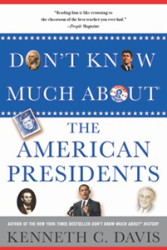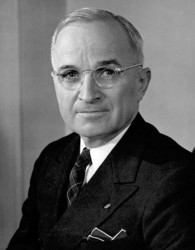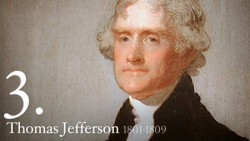Kenneth C. Davis's Blog, page 88
May 24, 2014
Memorial Day History and Traditions on CBS This Morning Saturday

Author Kenneth C. Davis discusses Memorial Day on CBS THIS MORNING
May 24, 2014, 8:05 AM|Memorial Day has become the “summer is here” holiday, but of course there’s more to it. Historian Kenneth C. Davis, author of the popular “Don’t Know Much” history series, joins “CBS This Morning: Saturday” with a history lesson on the most solemn of the 11 federal holidays.
May 23, 2014
Don’t Know Much About® Memorial Day
(Video originally posted May 2012. Produced and directed by Colin Davis)
Memorial Day brings thoughts of duty, honor, courage, sacrifice and loss. The holiday, the most somber date on the American national calendar, was born in the ashes of the Civil War as “Decoration Day,” when General John S. Logan –a-veteran of the Mexican and Civil Wars, a prominent Illinois politician and leader of the Grand Army of the Republic, a Union fraternal organization –called for May 30, 1868 as the day on which the graves of fallen Union soldiers would be decorated with fresh flowers.
“We should guard their graves with sacred vigilance. All that the consecrated wealth and taste of the Nation can add to their adornment and security is but a fitting tribute to the memory of her slain defenders. Let no wanton foot tread rudely on such hallowed grounds.”
Pointedly, Logan’s order was seen as a day to honor those who died opposing the “rebellion.”
Every year at this time, I spend a lot of time talking about the roots and traditions of Memorial Day.
It’s not about the barbecue or the Mattress Sales. Obscured by the holiday atmosphere around Memorial Day is the fact that it is the most solemn day on the national calendar. This video tells a bit about the history behind the holiday.
One way to mark Memorial Day is by simply reading the Gettysburg Address. Here is a link to the Library of Congress and its page on the Address. I also discussed Memorial Day in a previous post.
One of the most famous symbols of the loss on Memorial Day is the Poppy, inspired by this World War I poem by John McCrae, “In Flanders Fields”
In Flanders fields the poppies blow
Between the crosses, row on row,
That mark our place, and in the sky,
The larks, still bravely singing, fly,
Scarce heard amid the guns below.
We are the dead; short days ago
We lived, felt dawn, saw sunset glow,
Loved and were loved, and now we lie
In Flanders fields.
Take up our quarrel with the foe!
To you from failing hands we throw
The torch; be yours to hold it high!
If ye break faith with us who die
We shall not sleep, though poppies grow
In Flanders fields.Source: The poem is in the public domain courtesy of Poets.org

Soldiers of the 146th Infantry, 37th Division, crossing the Scheldt River at Nederzwalm under fire. Image courtesy of The National Archives.
Have a memorable Memorial Day!
(Images in video:Courtesy of the Library of Congress and Flanders Cemetery image Courtesy of the American Battle Monuments Commission)
May 19, 2014
Who Said It? (5/19/2014)

Lyndon B. Johnson (March 1964)
(Photo: Arnold Newman, WHite House Press Office)
President Lyndon B. Johnson, “The Great Society” Speech (University of Michigan, May 22. 1964)
Each year more than 100,000 high school graduates with proved ability do not enter college because they cannot afford it. And if we cannot educate today’s youth, what will we do in 1970 when elementary school enrollment will be five million greater than 1960? And high school enrollment will rise by five million. And college enrollment will increase by more than three million.
In many places, classrooms are overcrowded and curricula are outdated. Most of our qualified teachers are underpaid, and many of our paid teachers are unqualified. So we must give every child a place to sit and a teacher to learn from. Poverty must not be a bar to learning, and learning must offer an escape from poverty.
But more classrooms and more teachers are not enough. We must seek an educational system which grows in excellence as it grows in size. And this means better training for our teachers. It means preparing youth to enjoy their hours of leisure, as well as their hours of labor. It means exploring new techniques of teaching, to find new ways to stimulate the love of learning and the capacity for creation.
Source: American Experience-PBS: “LBJ”
A few months after declaring a “War on Poverty,” President Lydon B. Johnson outlined his ambitious domestic agenda to end poverty, improve the status of African Americans and create a more equal and just American society. In the speech Johnson said,
The Great Society rests on abundance and liberty for all. It demands an end to poverty and racial injustice, to which we are totally committed in our time. But that is just the beginning.
The range of programs that were introduced fifty years ago included Medicare, Medicaid, food stamps, Head Start, and the Job Corps.
In April 2014, New York Times reporter Trip Gabriel assessed the War on Poverty half a century later in “Fifty Years Into the War on Poverty, Hardship Hits Back.”
President Johnson was a schoolteacher in a poor, rural district in Texas before entering politics. Read more about his life, administration and legacy in Don’t Know Much About the American Presidents and Don’t Know Much About History,


Don’t Know Much About® the American Presidents (Hyperion Paperback-April 15, 2014)
May 12, 2014
Who Said It (5/12/2014)
President James K. Polk, “Special Message to Congress on Mexican Relations” (May 11, 1846)
Instead of this, however, we have been exerting our best efforts to propitiate her good will. Upon the pretext that Texas, a nation as independent as herself, thought proper to unite its destinies with our own she has affected to believe that we have severed her rightful territory, and in official proclamations and manifestoes has repeatedly threatened to make war upon us for the purpose of reconquering Texas. In the meantime we have tried every effort at reconciliation. The cup of forbearance had been exhausted even before the recent information from the frontier of the Del Norte. But now, after reiterated menaces, Mexico has passed the boundary of the United States, has invaded our territory and shed American blood upon the American soil. She has proclaimed that hostilities have commenced, and that the two nations are now at war.
As war exists, and, notwithstanding all our efforts to avoid it, exists by the act of Mexico herself, we are called upon by every consideration of duty and patriotism to vindicate with decision the honor, the rights, and the interests of our country.
On May 13, 1846, Congress declared war on Mexico.
PBS offers a collection of resources on the War With Mexico.
You can read more about Polk, his life and administration, the war with Mexico in Don’t Know Much About History, Don’t Know Much About the American Presidents and Don’t Know Much About the Civil War.



Don’t Know Much About® the American Presidents (Hyperion paperback-April 15, 2014)
May 8, 2014
Don’t Know Much About® Harry S. Truman
Harry Truman “Gave’ Em Hell.” I gave him a A. Born on May 8, 1884, the 33rd President of the United States.

President Harry S. Truman
(Photo: Truman Library)
It was on his birthday in 1945 that Truman was able to tell Americans that the war in Europe was over with the surrender of Germany.
THIS IS a solemn but a glorious hour. I only wish that Franklin D. Roosevelt had lived to witness this day. General Eisenhower informs me that the forces of Germany have surrendered to the United Nations. The flags of freedom fly over all Europe. For this victory, we join in offering our thanks to the Providence which has guided and sustained us through the dark days of adversity.
Described as “a minor national figure with a pedestrian background,” Truman was a World War I veteran and a Senator from Missouri when Franklin D. Roosevelt chose him to become his running mate in the 1944 election. Truman became vice president when FDR won his fourth term and then took office on April 12, 1945 when FDR died.
When he took office, Truman had been largely left “out of the loop” by Roosevelt as World War II entered its final months. Truman did not know of the existence of the “Manhattan Project” and the development of the atomic bomb until he became president. Then he had to make the decision to use it against the Japanese.
Fast Facts
•Truman was a member of the Sons of the Revolution and the Sons of Confederate Veterans
•He wanted to attend West Point but poor eyesight kept him out. He enlisted in the Missouri National Guard and served as the commander of an artillery battery in World War I.
•Before entering politics, he was a farmer, bank clerk, insurance salesman and owner of a failed haberdashery store.
•As president he once threatened to punch the nose of a newspaper critic who had given his daughter a poor review after her debut singing recital. Margaret Truman went on to greater fame as a mystery novelist, beginning with Murder in the White House published in 1980.
•After Grover Cleveland, Truman is the only president who did not attend college. He attended law school briefly but dropped out.
After the end of World War II, Truman had to shift America’s attention to the new “Cold War” with the Soviet Union and his policies of “containment” and the Marshall Plan to rebuild war-torn Europe were hallmarks of his presidency.
Harry S. Truman died on December 26, 1972. This is his New York Times obituary. The Truman Library and Museum is located in Independence, Missouri
Read more about Truman, his life and administration in Don’t Know Much About® the American Presidents.

Don’t Know Much About® the American Presidents (Hyperion Paperback-April 15, 2014)
May 6, 2014
Who Said It? (5/6/2014)

President Harry S. Truman
(Photo: Truman Library)
President Harry S. Truman
Broadcast to the American People Announcing the Surrender of Germany (May 8, 1945)
THIS IS a solemn but a glorious hour. I only wish that Franklin D. Roosevelt had lived to witness this day. General Eisenhower informs me that the forces of Germany have surrendered to the United Nations. The flags of freedom fly over all Europe. For this victory, we join in offering our thanks to the Providence which has guided and sustained us through the dark days of adversity.
Our rejoicing is sobered and subdued by a supreme consciousness of the terrible price we have paid to rid the world of Hitler and his evil band. Let us not forget, my fellow Americans, the
sorrow and the heartache which today abide in the homes of so many of our neighbors-neighbors whose most priceless possession has been rendered as a sacrifice to redeem our liberty.
We can repay the debt which we owe to our God, to our dead and to our children only by work–by ceaseless devotion to the responsibilities which lie ahead of us. If I could give you a single watchword for the coming months, that word is–work, work, and more work.
We must work to finish the war. Our victory is but half-won. The West is free, but the East is still in bondage to the treacherous tyranny of the Japanese. When the last Japanese division has surrendered unconditionally, then only will our fighting job be done.
April 30, 2014
Don’t Know Much About® George Washington’s Fashion Statement
The American Presidency began 225 years ago when George Washington took the oath of office on April 30, 1789.
For the occasion, Washington wore a suit made in Connecticut. He hoped it would become “unfashionable for a gentleman to appear in any other dress” than one of American manufacture.

(Excerpted from Don’t Know Much About® the American Presidents)
He took the oath of office on April 30, 1789, a cool, clear Thursday morning. One similarity to modern inaugurations was the big crowd. A large throng of New Yorkers filled the streets of what is now the city’s financial district, then the center of a city that was much smaller than modern Manhattan.
Washington arrived by carriage to what had previously been New York’s City Hall, given a “face-lift” by Pierre L’Enfant, future designer of the nation’s capital city. The entire government operated out of this single building, renamed Federal Hall. Washington managed more people on his Mount Vernon plantation than worked for the new national government.
For the inauguration he was dressed in a brown suit, white silk stockings, and shoes with silver buckles, and he carried a sword. The suit cloth was made in a mill in Hartford, Connecticut, and Washington had said that he hoped it would soon be “unfashionable for a gentleman to appear in any other dress” than one of American manufacture.
Standing on the second- floor balcony, the “Father of Our Country” took the oath of office on a Masonic Bible. Legend has it that he kissed the Bible and said, “So help me God”— words not required by the Constitution.
But there is no contemporary report of Washington saying those words. On the contrary, one eyewitness account, by the French minister, Comte de Moustier, recounts the full text of the oath without mentioning the Bible kiss or the “So help me God” line. Washington’s use of the words was not reported until late in the nineteenth century. (The demythologizing of this piece of presidential history occasioned a suit by notable atheist Michael Newdow, who sued unsuccessfully in 2009 to keep all mention of God out of the inauguration of Barack Obama.)
What followed was the first Inaugural Address, written by James Madison. Here Washington spoke freely of “the propitious smiles of Heaven”— a divine hand in guiding the nation’s fate. These heavenly references raise the perennial question of faith in the early republic. But, as Ron Chernow writes in Washington, “Washington refrained from endorsing any particular form of religion.”
Here is the transcript of Washington’s first inaugural address from the National Archives. The site of the first inauguration is Federal Hall National Memorial.
Read more about Washington, his life and his presidency in Don’t Know Much About® the American Presidents and Don’t Know Much About® History.

Don’t Know Much About® the American Presidents (Hyperion Paperback-April 15, 2014)
April 15, 2014
Pop Quiz: Whose private library became the foundation of the Library of Congress?

Don’t Know Much About® the American Presidents (Hyperion Paperback-April 15, 2014)
It is National Library Week -a time to celebrate the value and fundamental importance of the public library to American democracy.
No better place to do that than with America’s library–the Library of Congress.
So here’s the answer– the man who said,
I cannot live without books.
Thomas Jefferson in a letter to John Adams, 1815

Thomas Jefferson, third president (Source: White House)
Established with $5,000 appropriated by the legislation, the original library was housed in the new Capitol until August 1814, when invading British troops set fire to the Capitol Building, burning and pillaging the contents of the small library.
Within a month, retired President Thomas Jefferson offered his personal library as a replacement. Jefferson had spent 50 years accumulating books, “putting by everything which related to America, and indeed whatever was rare and valuable in every science”; his library was considered to be one of the finest in the United States. In offering his collection to Congress, Jefferson anticipated controversy over the nature of his collection, which included books in foreign languages and volumes of philosophy, science, literature, and other topics not normally viewed as part of a legislative library. He wrote, “I do not know that it contains any branch of science which Congress would wish to exclude from their collection; there is, in fact, no subject to which a Member of Congress may not have occasion to refer.”
In January 1815, Congress accepted Jefferson’s offer, appropriating $23,950 for his 6,487 books, and the foundation was laid for a great national library. The Jeffersonian concept of universality, the belief that all subjects are important to the library of the American legislature, is the philosophy and rationale behind the comprehensive collecting policies of today’s Library of Congress.
Read More on Jefferson;s Library here
The story of the sale of the Jefferson library is also told at Monticello
April 11, 2014
Win a Free Don’t Know Much About® Library

Don’t Know Much About® the American Presidents (Hyperion Paperback-April 15, 2014)
Enter to win a DON’T KNOW MUCH ABOUT® library of books for your home or classroom in honor of the paperback release of DON’T KNOW MUCH ABOUT® THE AMERICAN PRESIDENTS from Hachette Books!
We’re offering a fabulous book & audiobook (Audio CD) gift set (worth more than $120!) featuring bestselling author Kenneth C. Davis’ popular titles including his newest one: DON’T KNOW MUCH ABOUT® THE AMERICAN PRESIDENTS!
10 lucky winners will receive: DON’T KNOW MUCH ABOUT® HISTORY, DON’T KNOW MUCH ABOUT® GEOGRAPHY, DON’T KNOW MUCH ABOUT® THE CIVIL WAR, DON’T KNOW MUCH ABOUT® THE AMERICAN PRESIDENTS, AMERICA’S HIDDEN HISTORY, and the DON’T KNOW MUCH ABOUT® THE AMERICAN PRESIDENTS audiobook.
So remember, what you DON’T KNOW can be thrilling!
This Giveaways sweepstakes can be found here on Goodreads
March 26, 2014
Pop Quiz: Name the First Poet to take part in a Presidential Inauguration?
Who was the first poet to take part in a U.S. Presidential Inauguration?
Answer: Robert Frost, at the inauguration of John F. Kennedy in January 1961. Robert Frost was born on March 26, 1874 in San Francisco. For more on Robert Frost, check out this post “A Lover’s Quarrel With the World.”

Don’t Know Much About® the American Presidents (Hyperion paperback-April 15, 2014)

Don’t Know Much About® Literature- A collection of quick quizzes written with Jenny Davis



